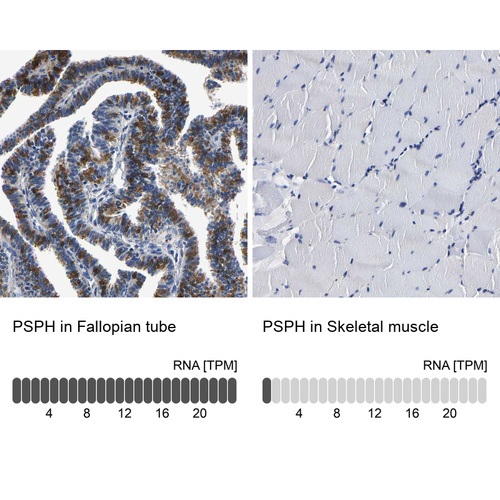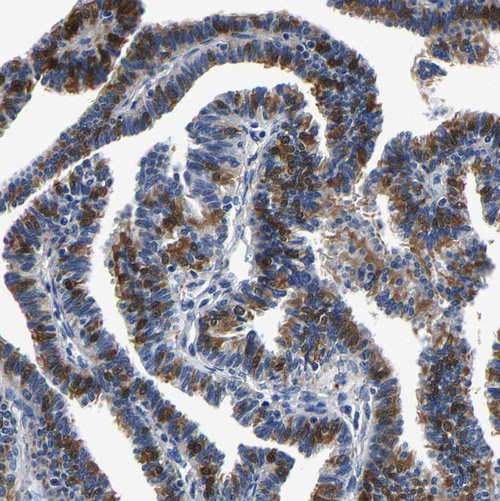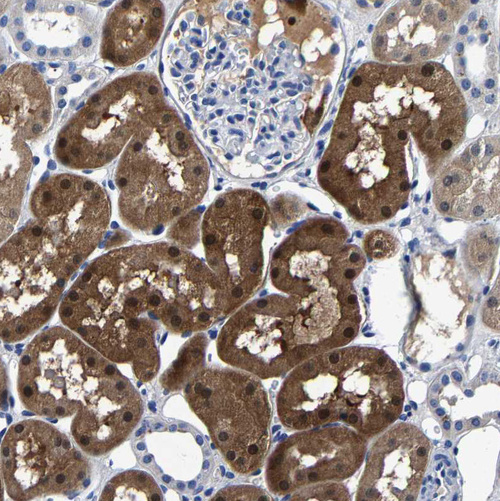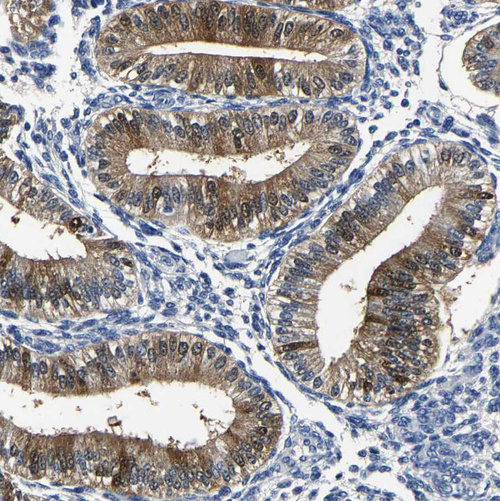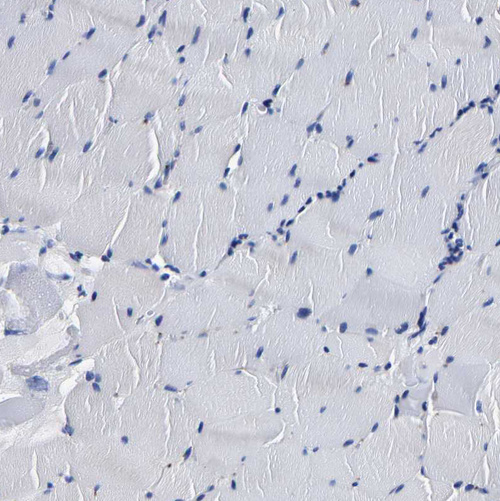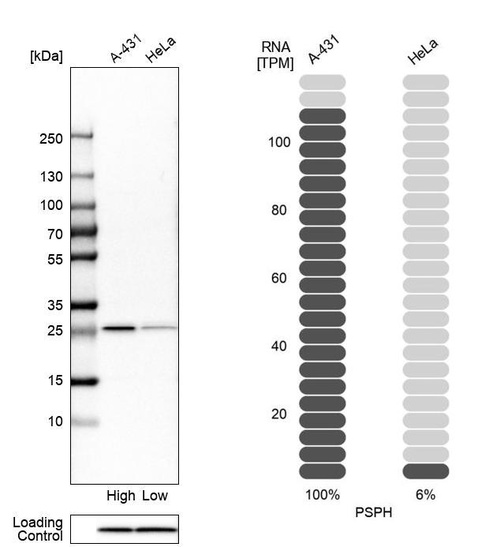All products are designed for the highest possible performance and are manufactured using a standardized process to ensure the most rigorous levels of quality.
Product details
- Target protein: phosphoserine phosphatase
- Target gene: PSPH
- Verified species reactivity: Human
- Interspecies information: Highest antigen sequence indentity to the following orthologs: MOUSE - ENSMUSG00000029446 (92%)RAT - ENSRNOG00000000925 (93%)
- Clonality: Polyclonal
- Isotype: IgG
- Host: Rabbit
- Buffer: 40% glycerol and PBS (pH 7.2). 0.02% sodium azide is added as preservative.
Material Safety Data Sheet - Purification method: Affinity purified using the PrEST antigen as affinity ligand
- Antigen sequence: Recombinant Protein Epitope Signature Tag (PrEST) antigen sequence
- AVCFDVDSTVIREEGIDELAKICGVEDAVSEMTRRAMGGAVPFKAALTERLALIQPSREQVQRLIAEQPPHLTPGIRELVSRLQERNVQVFLISG
- Notes: Gently mix before use. Optimal concentrations and conditions for each application should be determined by the user.
Current lot
- Unit size: 100µl
- Current lot: B115600
- Concentration: 0.2 mg/ml
Applications
- Immunohistochemistry (IHC) recommended conditions
- Dilution: 1:200 - 1:500
- Retrieval method: HIER pH6
- Western Blot (WB) recommended conditions
- Working concentration: 0.04-0.4 µg/ml
Validation
- Immunohistochemistry (IHC)Orthogonal validation of protein expression using IHC by comparison to RNA-seq data of corresponding target in high and low expression tissues. All IHC characterization data in 44 normal tissues and 20 cancers for HPA020376 on the Human Protein Atlas
- Western Blot (WB)Orthogonal validation of protein expression using IHC by comparison to RNA-seq data of corresponding target in high and low expression tissues.
Target information
- Protein name: phosphoserine phosphatase
- Gene name: PSPH
- Alternative gene names: PSP
- Ensembl: ENSG00000146733
- Entrez: 5723
- UniProt: P78330
Shipping and storage
- Shipping: Normally shipped at ambient temperatureStorage: Store at +4°C for short term storage. Long time storage is recommended at -20°C.
References (9)
- p63 orchestrates serine and one carbon metabolism enzymes expression in head and neck cancerBiol Direct , 2023 Nov 9; 18:73. Epub 2023 Nov 92023 Nov 9
- Serine metabolism remodeling after platinum-based chemotherapy identifies vulnerabilities in a subgroup of resistant ovarian cancersNat Commun , 2022 Aug 5; 13:4578. Epub 2022 Aug 52022 Aug 5
Did we miss your publication? Have you published using HPA020376? Please let us know and we will be happy to include your reference on this page. Submit reference
Researcher Contributions
Join the Explorer Program Are you using our products in an application or species we have not yet tested? Why not participate in the Explorer Program, and we will show your contribution here. If you would like to share your results with us, the Explorer Program offers a 25µl vial free of charge with your next order. Read more...
Alternative antibodies
Corresponding antigens
With Atlas Antibodies you get
From our facilities in Stockholm, Sweden we develop, manufacture and distribute highly advanced reagents to the Life Sciences community worldwide.
Our products are available to customers worldwide. From most locations, you can order our products from Atlas Antibodies. Please see more information about how to order here.
Learn how we validate our antibodies, how we secure their reproducibility, and why we apply enhanced validation. Our antibodies are validated in IHC, ICC-IF, and WB.




